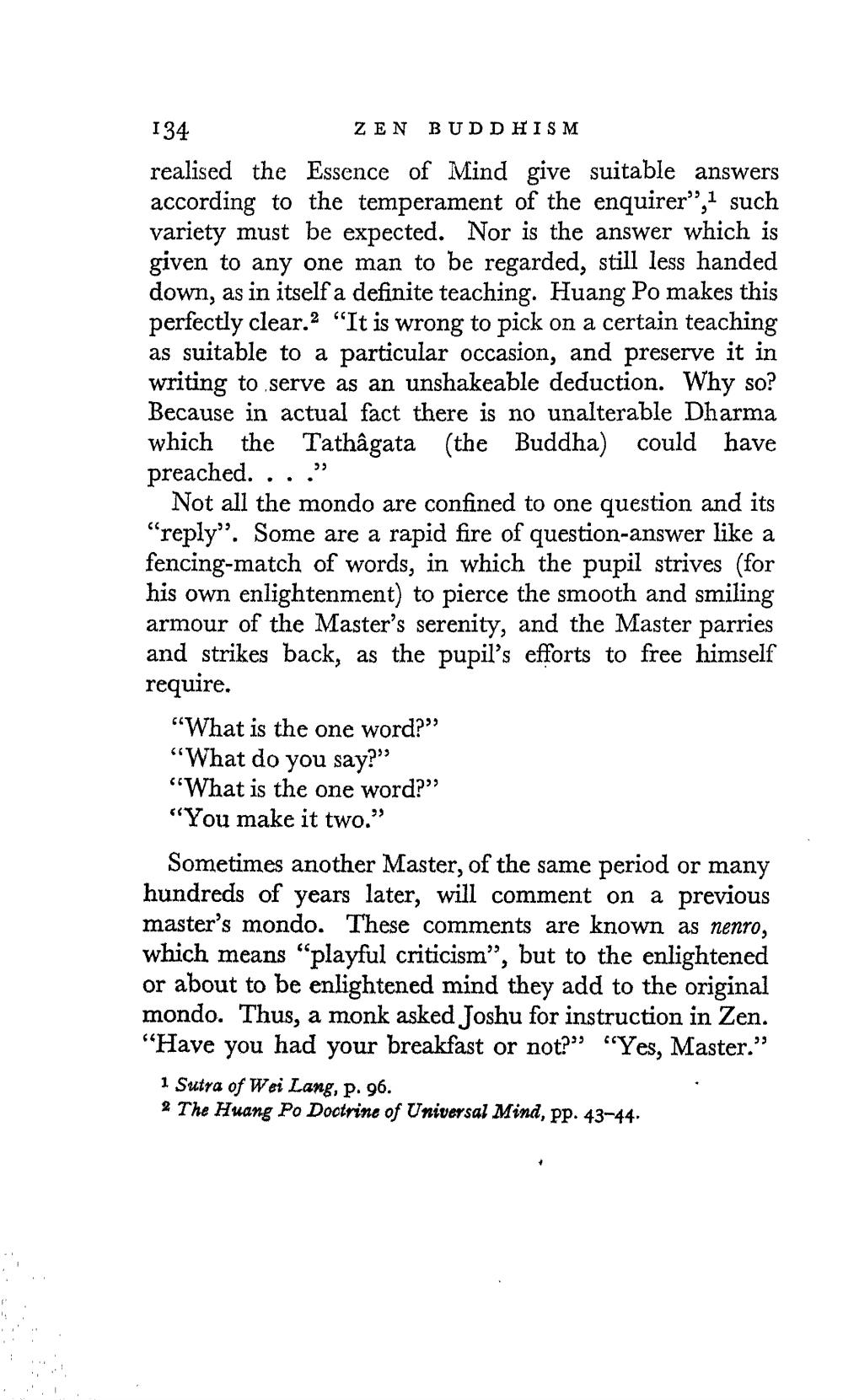________________
134
ZEN BUDDHISM realised the Essence of Mind give suitable answers according to the temperament of the enquirer",1 such variety must be expected. Nor is the answer which is given to any one man to be regarded, still less handed down, as in itself a definite teaching. Huang Po makes this perfectly clear.? "It is wrong to pick on a certain teaching as suitable to a particular occasion, and preserve it in writing to serve as an unshakeable deduction. Why so? Because in actual fact there is no unalterable Dharma which the Tathâgata (the Buddha) could have preached. ..."
Not all the mondo are confined to one question and its "reply". Some are a rapid fire of question-answer like a fencing-match of words, in which the pupil strives (for his own enlightenment) to pierce the smooth and smiling armour of the Master's serenity, and the Master parries and strikes back, as the pupil's efforts to free himself require.
“What is the one word?" “What do you say?" “What is the one word?" "You make it two."
Sometimes another Master, of the same period or many hundreds of years later, will comment on a previous master's mondo. These comments are known as nenro, which means "playful criticism", but to the enlightened or about to be enlightened mind they add to the original mondo. Thus, a monk asked Joshu for instruction in Zen. "Have you had your breakfast or not?" "Yes, Master.”
1 Sutra of Wei Lang, p. 96. 2 The Huang Po Doctrine of Universal Mind, pp. 43-44.




